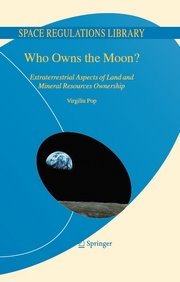Hellenic history notes, printed in lyre sound, trips of the Gods on Earth. Clothed in bulls or mortals, their descent from the Olympian heights to mingle with the crowd is a fact of the normal. The aftermath, however, is not.
That morning, Hellios was pouring upon Phrygia an unequalled soft light. On a river shore, two tired travellers were following their path to nowhere. It was, maybe, the easiest way - because the path is not imposed - or maybe the most difficult, as a guide to nowhere is impossible to find. But, while their way into space was of their choice, the one in time was decided by Chronos; with every steps they were taking, the morning was becoming noon, and the noon, evening. And, as the aim of their trip - nowhere - becomes during the night everywhere, every night the two travellers were able - or had - to stop. Either under the roof of a house, or under the hiding mantle of the night.
It would be improper to say that by the sunset the Gods have put in their way a village. Because Gods were themselves - Zeus, the master of the Universe, and Hermes - descended upon Phrygian realms from the hights of the Olympus (or, rather, from the strings of the aeds). Knocking from gate to gate, they were asking for hospitality in the name of the Olympians. But what rich household could lower itself to receive two dust-snowed travellers? The golden and silver gates were closing, one after another, in their face, the zephyr multiplying from house to house the refusal of hospitality.
It was past sunset when, eventually, the celestial eyes rested upon a home clothed in wood, the humblest house in all the village. An old man welcomed the two travellers inside.
They were telling about this old man that his love for Baucis - his wife - was limitless. The same, Baucis was thinking that the greatest gift Gods made to a mortal was Philemon. While singing their story, the strings of the lyre were stopping when they were to speak about the love they cared for eachother. Because the rest or the torment of the love cannot be played by any string.
And, when in their life it was so much love, how could they care for gold? Therefore, anything was theirs belonged to others, as that night their house was the home of two tired travellers. A godly house, I mean.
Hebe, the cup-bearer of Olympus may have to learn from the two old people when they were serving the Gods. Especially because they were unaware who the two guests were.
Treated with the best of that home, the two travellers unveiled, at midnight time, their true identity. The same, they shared with the elderly couple their decision to punish the whole village for its ingrate behaviour that day. Tormented, following the Gods, Philemon and Baucis, holding hands as always, climbed a hill where the destructive wrath of the celestial revenge could not reach them. Behind them, the village they used to live was already buried under the mirror of a lake. And in the place of the house that was their dwelling place for a life, and the dwelling place of the Gods for a night, the Godly powers have built an isle where a temple of white marble and gold laid. And Zeus was to be always present in the place he has found so much hospitality, in the form of a statue.
The Olympians were accustomed to answer with hate to hate, and with indifference to good. This time, however, Zeus decided that the elderly couple fully deserved a reward.
The temptation of the gold was indifferent to Philemon. Youth, that Gods could give back both to Philemon and Baucis, has been so beautiful, that to be lived again would have meant to destroy the memories of the past by transforming them into the sharp present. Therefore, Philemon spoke to Zeus:
“It is so hard, my master, to ask for such a huge thing as my most priced desire is. Nevertheless, in your limitless justice, you promised to us a seamless gift. I beg you, therefore, for your mercy in making so that, when time is I close my eyes forever, this shall be at once with the one I love most”.
Baucis looked with tearful eyes at Philemon. So much love as in that glance could not be comprehended even by Eros. Surprised by the modesty of the reward asked for, Zeus said: “Let it be!”, and descended together with Hermes and the elderly couple at the temple grown from the waters. Here, the Olympians told them that they were to serve Zeus until Philemon will be united in death with the one he loves. Although they did not ask for gold, Zeus gave them on that island broad orchards, and a servant - Antigona, wearing the same name as the one that, once upon a time, will be guiding Oedipus in his long wanderings. It is difficult to serve Zeus with arms weakened by old age; therefore, Antigona was to be of great help.
Merciless, time poured more old age upon Philemon and Baucis. But the fact that the godly reward will not separate Baucis of Philemon even after death was giving Baucis power to live in rest her old days.
It was noon when the claw of the ending bent Philemon’s knees. With tearful eyes, the old man prepared to give a copper coin to Charon, the one who will cross his soul over the Styx. He was alone in the orchard when death took him.
In the same moment, in the temple, Baucis saw how beautiful Antigona fell in the arms of death.
Virgiliu Pop
Sunday, April 9, 1995
Philemon and Baucis
Saturday, April 8, 1995
Eskaton - The Last One
If the Absolute lacks an atom, it is not absolute anymore. And the Olympian absolute lacks an only thing, sufficient though to put the Gods on the same level with the mortals: they cannot oppose Destiny.
From a certain time now - who could tell its measure - Zeus seemed touched by a mysterious disease. He ceased to throw his flashes of light and malediction over Greece and Arcadia; he would rather spend some time now and then in the cave that sheltered his infancy. Rumours circulated by the nymphs were telling that the master of the Olympus was gathering his thoughts there. Sitting on a stone, with his head in his palms, he was meditating like the most ordinary philosopher. A meditating God was of no comprehension - especially if the God was the Master of the Olympus himself, known for his impulsivity, for the trigger-happiness shown in his doings. However, it seemed that reality was in tone with the rumours. Zeus himself was scared of his recent human behaviour - especially to act like a philosopher! He hated mostly the philosophers - as they were arrogating that they were immortal through their everlasting teachings. Such a daring fact could not pass unpunished; Zeus himself happened to descend on Earth to punish the thinkers, wearing the mantle of a poison cup.
Not to search a solution in a desperate case seemed to Zeus more of despise than the philosophy. Especially now, when the very Master of the Olympus happened to be in danger. He was afraid that the fact of defeating his father - Chronos- would be eventually punished. He was aware that the destiny of a God was not immune to revenge. And he was frightened by the thought that Chronos will pay back for the humiliating fact of being defeated by his own son.
Olympians noticed also that Zeus begun to act like an elderly man. And, when it happened - though rarely - to strike the earth with flash and thunder, he was doing it with shaking hands. The Master of the Universe was, therefore, growing old.
He realised himself, one day, that the revenge promised by his father could not come, as it was already there. The god of the time was making old, with every second and with every aeon, his usurping son. Thus, eternity became finite time also for Zeus. And finite time meant death - a word unknown up to then by Zeus.
Accustomed from a certain time with meditation, a thought came to Zeus’s mind. An idea that could annihilate the awful revenge. He could try to hit the destiny by killing his father. Annihilating, in other words, the Time.
He begun by destroying all the sandglasses existing in the Olympus and on Earth. But, widowed of sandglasses, time ceased not to flow. Then, for the days not to exist anymore, Zeus ordered Helios to stand fixed on the sky and descend no more. But time continued with no cease its way. Even without days. Next move from Zeus was the immobilisation of the Moon on a fixed location on the firmament. Furthermore, as Chronos gave no signs of defeat, Zeus stopped the Earth, cancelling the years. Then, the stars followed, and the galaxies. With no result. Until he realised that the Universe was pulsating of life. And every life was, by itself, an infallible horologe. Therefore, he destroyed all the beings on Earth. But in the Olympus one could still hear the rhythms of divine banquet, signs of the passage of time.
Therefore, he killed all the Pantheon. He killed, in other words, the last traces of time.
Once finished his destructive endeavour, Zeus thought that, after saving his own life by annihilating all the others, he deserves a moment of rest. Not exactly a moment, as time did not exist anymore. An eternity. Therefore, he laid on an Olympian chair.
In the silence of the rest, a rhythmic pulsation, like a tic-toc, begun to make itself heard to Zeus.
His own heart.
Virgiliu Pop





